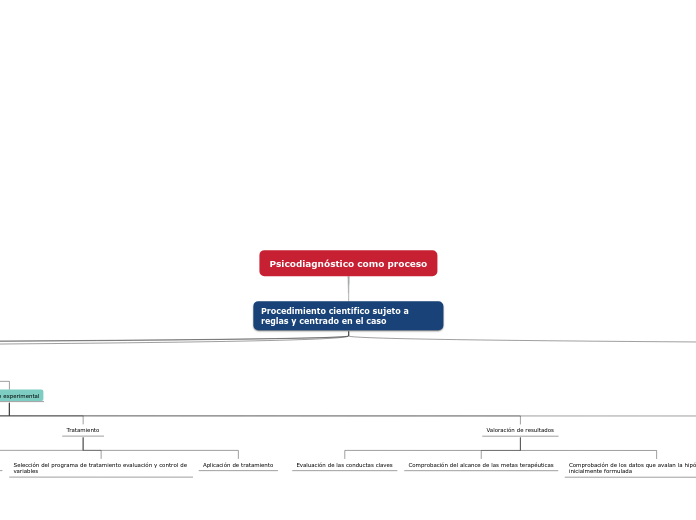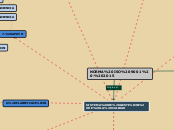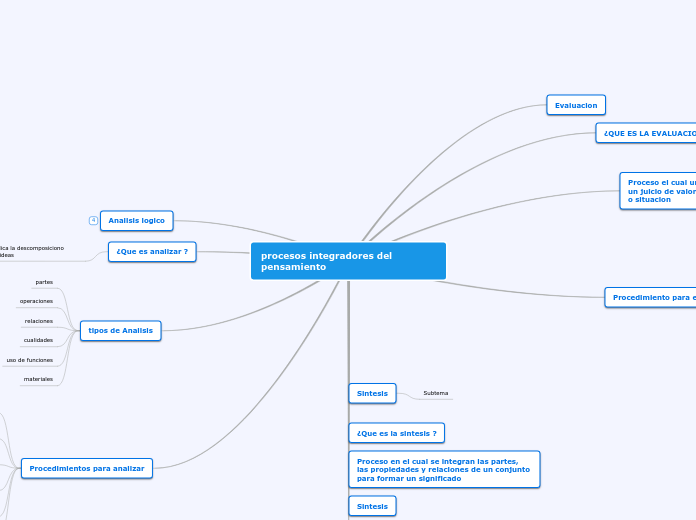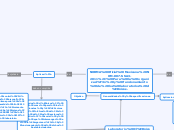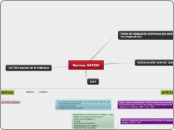Psicodiagnóstico como proceso
Type in the name of the multiple-perspectives text.
Example: Bridge to Terabithia by Katherine Paterson
Procedimiento científico sujeto a reglas y centrado en el caso
Identify an important issue from the text that is being presented from different angles. Type it in.
Example: Jesse's drawing talent.
TAREAS
Decide on the fourth point of view
Type in the name of the last character whose perspective on the issue you are going to present.
Example: Leslie Burke, Jesse's new next-door neighbor, and best friend.
Valorar intervenciones
Tratamiento y recogida de datos
Determinación de la conducta a modificar y de las variables a manipular
Elaborar resultados y conclusiones
Especificaciones de conclusiones sobre
los objetivos
la hipotesis
Combinación de datos
Análisis de datos
Valoración de datos
Aplicar tecnicas
Planificar, selección de técnicas y procedimiento a seguir
Utilización de multimetodos
Precisar en base de la técnica utilizada
Elección
del universo que se generaliza
de cualidades cientificas
Análisis sistémico o funcional
Seleccionar variables a analizar
Ambientales
Organismo
Conductuales
Plantear supuestos del caso
Relación explicativa
Asociación predictiva
Semejanza
Cuantificación
A través
de la información de las observaciones y los datos empíricos de áreas de la psicología
Fijar Objetivos y especificar cuestiones concretas
De pensamientos vagos a terminos conductuales concretos
Especificaciones situacionales
Establecer coordenadas socio demográficas y ambientales
Point of view
Type in a relevant quote that highlights the character's point of view. Try to follow a citation format: author's name, chapter, and page.
Example: I can't get the poetry of the trees,' he said. She nodded. Don't worry,' she said. You will someday. He believed her.' (Paterson, 4. 24)
Establecer recursos útiles a la hora de orientación y tratamiento.
Permite plantear hipótesis determinadas acerca de un déficit conductual
How is the viewpoint introduced in the story?
Choose an answer:
First person point of view - using the personal pronouns 'I' or 'we'Second person point of view - using the personal pronoun 'you'Third person point of view - using the third-person pronouns 'he', 'she' and 'they'Omniscient point of view - an all-seeing observer tells the story
ENFOQUES
Whose character does the third point of view belong to?
Type in his/her name.
Example: Mr. Aarons, Jesse's father.
Enfoque experimental
Seguimiento
Comprobación de como se mantuvieron los resultados del tratamiento
Nueva recogida de datos
Valoración de resultados
Comprobación de los datos que avalan la hipótesis inicialmente formulada
Comprobación del alcance de las metas terapéuticas
Evaluación de las conductas claves
Tratamiento
Aplicación de tratamiento
Selección del programa de tratamiento evaluación y control de variables
Establecimiento de metas terapéuticas
Selección de conductas claves y variables
variables relevantes a manipular (independiente)
conductas claves a modificar (dependiente)
Deducción de previsiones verificables a partir de la hipótesis
Formulación de las hipótesis contrastables respecto a las conductas problemas
Formulación y evaluación del problema
Especificación de las variables relevantes
Delimitación del problema
Enfoque Correlaciónales
What does the character think, say or do that suggests their perspective on the issue?
Type in a quote and try to maintain the citation format.
Example: 'He would like to show his drawings to his dad, but he didn't dare. (...) He'd thought his dad would be pleased. He wasn't. What are they teaching in that damn school? he had asked.' (Paterson, 2.8)
Fase 5
Descripción, clasificación, predicción y toma de decisiones.
Esto lleva a informar sobre las conclusiones pertinentes que dan respuesta a los objetivos y metas propuestas.
Fase 4
Verificación
Permite comprobar si los supuestos han sido contrastados o no, en base, a la elaboración del conjunto de los datos cuantitativos o cualitativos.
Fase 3
Deducción de conclusiones
se establece mediante la selección de variables y la planificación del caso
Fase 2
Formulación de hipótesis
se realizan preguntas que luego serán supuesto
Fase 1
What kind of narration introduces the viewpoint?
Choose an answer:
First person point of view - using the personal pronouns 'I' or 'we'Second person point of view - using the personal pronoun 'you'Third person point of view - using the third-person pronouns 'he', 'she' and 'they'Omniscient point of view - an all-seeing observer tells the story
Observación y recogida de información
Evaluador se sitúa como observador participante
Permite
establecer supuestos de la coordenadas sociodemográficas y ambientales
Uso del método hipotético deductivo
Decide on the second point of view
Name the character (it can either be the main character or one of the supporting characters) whose point of view you are presenting.
Example: Miss Edmunds, Jesse's music teacher.
PROCESOS
Decide on the first point of view you are going to present.
Type in the name of the character (it can either be the main character or one of the supporting characters) whose point of view belongs to.
Example: Jesse Oliver Aarons, Jr., the main character of the novel, a fifth-grader living in a rural Southern area.
Proceso dialectico de obtención de conclusiones
Vía sintomatológica
Selecciona
aspectos de la amplia gama de datos disponibles
Vía Fenomenológica
Describe
su relacion con el medio
conducta del evaluado
modo particular de experiencia
Proceso de toma de decisiones
No abarca solamente la aplicación del test
What type of narration introduces the viewpoint?
Choose an answer:
First person point of view - using the personal pronouns 'I' or 'we'Second person point of view - using the personal pronoun 'you'Third person point of view - using the third-person pronouns 'he', 'she' and 'they'Omniscient point of view - an all-seeing observer tells the story
Proceso de formación y conformación de hipotesis
Type in a relevant quote that highlights the character's point of view towards
Procedimiento científico sujeto a reglas y centrado en el caso.
Try following a citation format: author's name, chapter, and page.
Example: 'Jesse drew the way some people drank whiskey. (...) Lord, he loved to draw. (...) When he was in first grade, he told his father that he wanted to be an artist when he grew up.' (Paterson, 2. 7)
